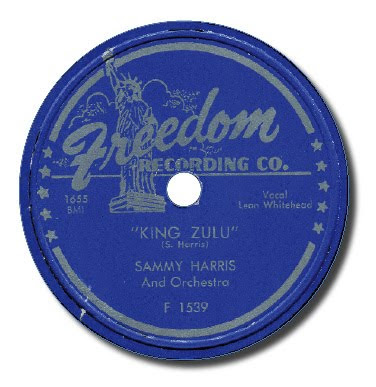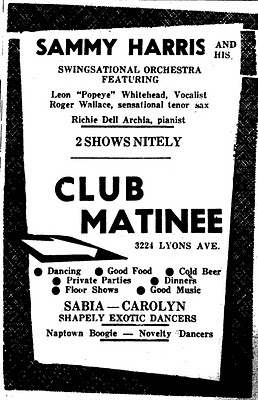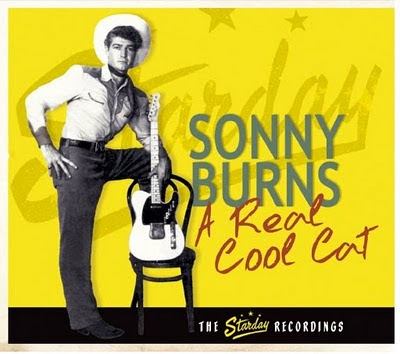
Homer Zeke Clemons - Dallas Limited / Oklahoma Bound (Imperial 8091)
"Dallas Limited"
"Oklahoma Bound" ("Mean Mama Blues")
Homer Clemons is remembered today for his version of Georgia Tom Dorsey's "(Terrible) Operation Blues," a record celebrated by Nick Tosches in his book Country. The original version on Swing was not reissued until the late 1990s, but the Blue Bonnet/Modern version was pressed no less than four times -- twice in 1947, again in the early '50s, then finally in the late '50s (as "Hank Brown"). Given this much attention, it's tempting to believe the record was something of a hit. We should be careful in assessing how much of a "hit" it was, however, as a record had to only sell 1,000 copies to be considered a regional "hit." There were no cover versions; then again, something that risque would not have been touched by the mainstream "hillbilly" A&R men of the day, even if it had sold very well.
Far less known are Clemons' four excellent records on Imperial, all from 1950. "Dallas Limited" rearranges the old Jimmie Davis/Milton Brown "Davis Limited/Brownie Special" with Arthur Smith's "Guitar Boogie" riff. "Oklahoma Bound" is an update of Moon Mullican's "Mean Mama Blues," also from the pre-war days. Clemons sings and plays bass, but the guitar, steel, and drums are unknown. Feeling no pain, Clemons also helps himself to the writer's credits on both sides.
Below: "Zeke" Clemons and his Texas Swingbillies at the Round-Up Club No. 2, Dallas, c. 1950. From left: Dub Dickerson, Clemons, Joe Rea, Tiger Echols, Red Mullins, and Ken Lasater. Photo courtesy Kevin Coffey Collection. Click to enlarge.

Despite a lengthy presence on the Dallas/North Texas music scene -- ranging probably from the 1930s to the mid-1950s -- almost no biographical information has survived on Homer "Zeke" Clemons. He must have been playing somewhere during the pre-war days, but where we don't know. He spent some time in the military during WWII. In 1944, he played bass for awhile in Jimmie Davis's gubernatorial band alongside Mullican, Joe Shelton, and Johnny Gimble. In late 1946 or early 1947, he made two records for the Paris-based Swing label, then (with a much smaller band) switched to Blue Bonnet. At a certain point he began acquiring jukeboxes in the Dallas area, and is mentioned in this capacity in the Dallas Morning News clipping shown below. After the Imperial sessions, he continued to play and occasionally was recruited for session work, e.g. Lee Bell on RCA-Victor. He was playing again with Gimble when he was involved in a serious car crash around 1954. This apparently ended his career.
Clemons, as far as I know, never appeared on the Big "D" Jamboree. He was probably considered too old-fashioned, or his songs too risque (or both), for that family program. Like Leon Chappelear, Clemons apparently never could really adapt to post-war, Nashville-based country music. His heart remained in the free and easy western swing of the '30s.
It is not known exactly when Clemons was born, or when he died. However, a Homer Zerle Clemons, born in Van Zandt County (near Dallas) in 1913 died in 1961. Is this our man? I don't know, but a 1961 death would help explain his near-total eclipse from the memories of Dallas musicians.
Below: Homer Clemons in the Dallas Morning News, March 14, 1950.











































